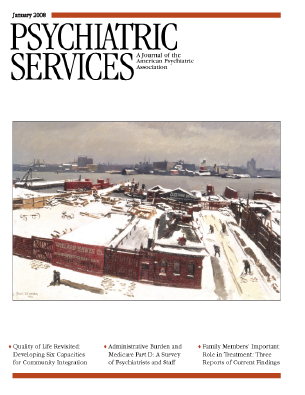Treatment Collaboration: Improving the Therapist, Prescriber, Client Relationship
Medication has become widely accepted as a cornerstone for the treatment of serious mental illness. As our understanding of how brain chemistry influences mood, thought, and behavior has continued to grow, there has been a corresponding growth in the acceptance of the role of medication by both our patients and society at large. Medication is a tool that can help people manage their mental illness and achieve their preferred roles and life goals. On the other hand, it is sometimes used without adequate consideration of what improvement it is expected to provide.
The debate over whether medication is good or bad can obscure clear thought about how a person can best achieve a more independent life and sustained recovery. Overall, shortening the period of untreated psychosis, particularly during the early stages of illness, can minimize disability and life disruption. The length of time a person remains acutely psychotic is often prolonged when the person does not believe that he or she has a mental illness, a cruel but common consequence of having schizophrenia. In addition, the person often has an array of cognitive deficits that make it difficult for them to collaborate with care providers. The person may also be disinclined to seek treatment as a function of attitudes expressed by individuals in his or her social and support networks.
Longer periods of untreated psychosis are harmful, as they often result in predictably longer recovery periods with lower subsequent baseline levels of functioning; unnecessarily long lengths of stay in involuntary hospital settings, with an associated decline in the ability to function in the community; avoidable injuries to the person suffering from psychosis and to others; unnecessarily chaotic climates on treatment units where other people are working to gain control of their illnesses and move toward recovery; and undue economic burdens on the person suffering from the psychosis, his or her family, and society in general. Untreated psychosis may also strengthen the stigma of mental illness by providing the general public with dramatic glimpses of uncontrolled psychosis that reinforce negative stereotypes.
Treatment Collaboration is a book about how clients, therapists, and prescribers can work together to make medication decisions so that medication is as effective as possible in helping patients achieve personal goals. It is essential reading in a time when the care of persons with serious mental illness is largely provided by teams of professionals who must view their work through the common lens provided by their patient.
The authors, Ronald Diamond and Patricia Scheifler, are distinguished clinicians who have years of experience helping persons with serious mental illness achieve and sustain recovery. Treatment Collaboration affords us the benefit of their collective experience and is organized by key topical areas, such as how to manage the inevitable conflicts that will arise in the course of care management, how to help the patient deal with medication side effects and choose when medication should be changed, and how to remember that the patient's recovery is the goal, not medication adherence per se.
We as mental health professionals must remember not to equate the care we provide solely with strategies for medication adherence. Diamond and Scheifler rightly argue that using medications is an active process that requires a partnership between the client, the physician, and often a therapist or counselor. It is only when such treatment teams practice effective shared decision making that the advantages and disadvantages of a particular intervention may be assessed in the context of the client's personal aspirations and stage of recovery. Such collaborations remain the surest way for people with serious mental illness to enjoy a full and sustained recovery.



